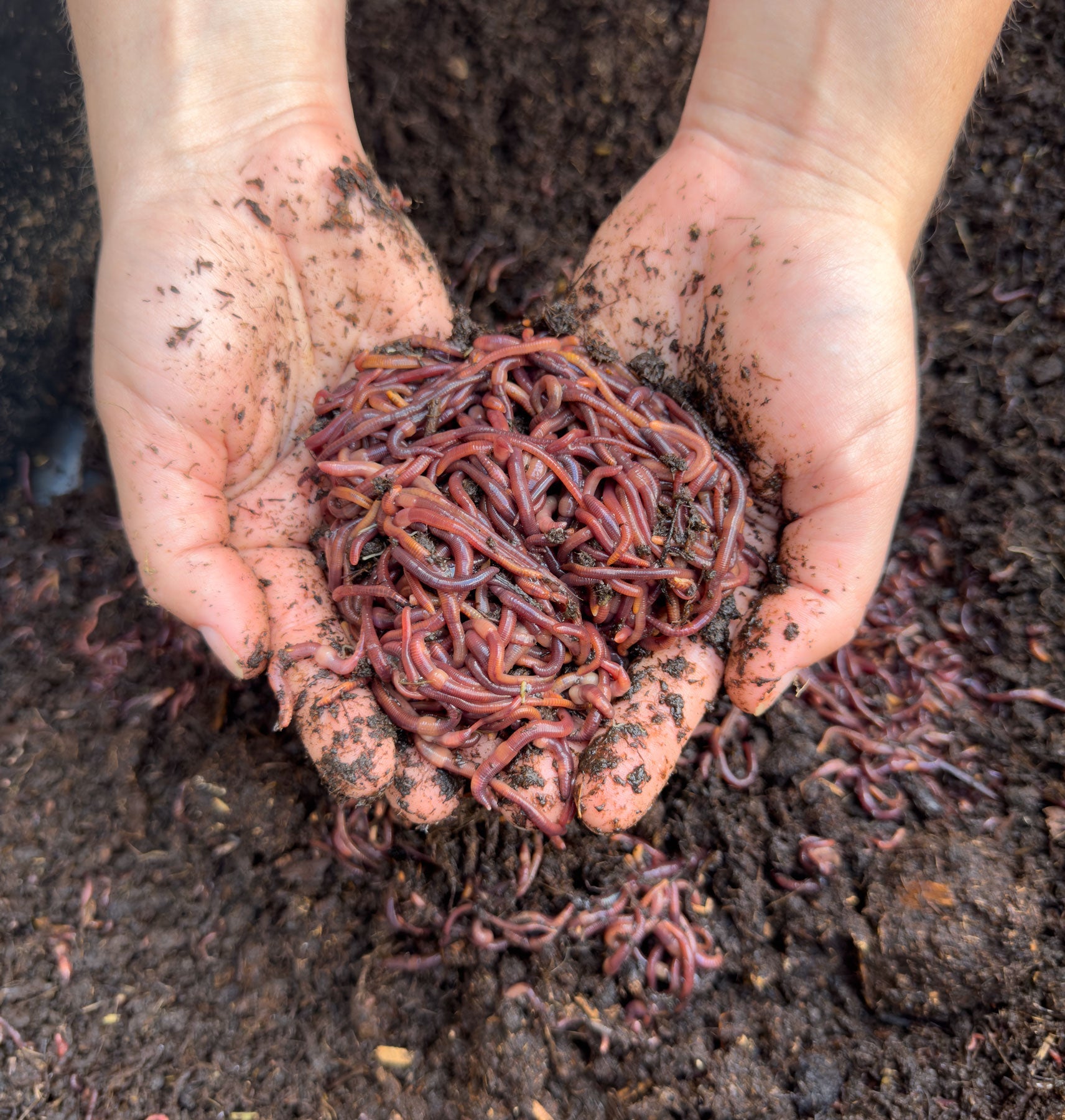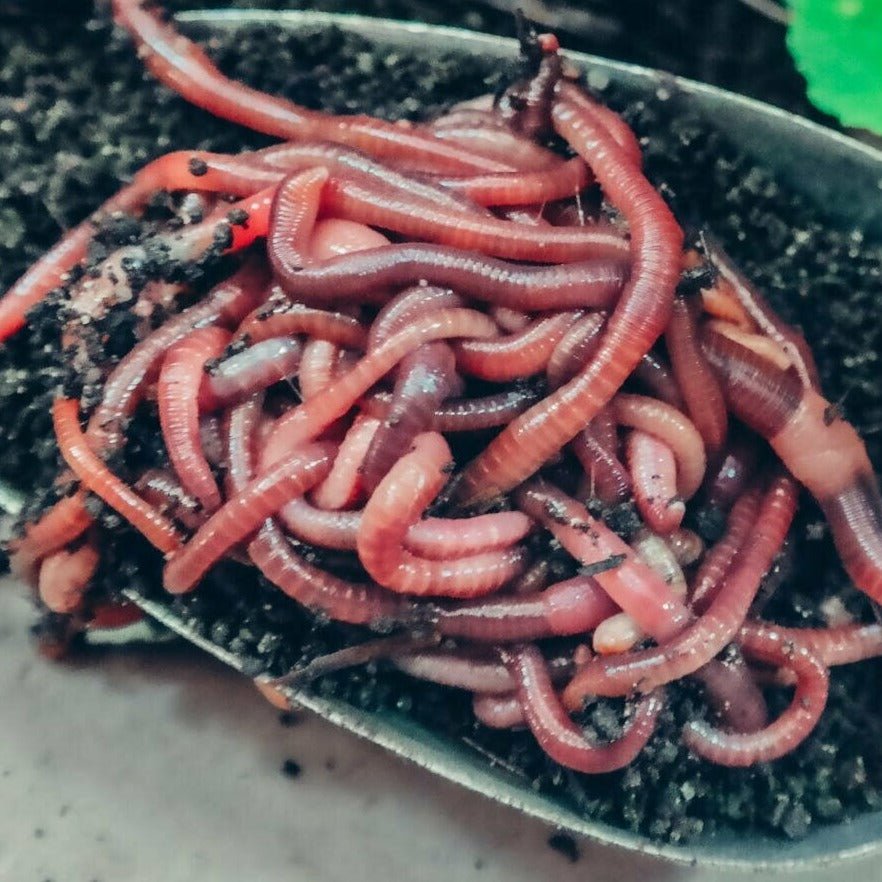Maximize Lawn Growth with Effective Products from Red Wiggler Express
The Unbelievable Globe of Red Wigglers: Increase Your Soil Fertility Today
These small yet effective organisms change natural waste right into valuable worm spreadings, significantly improving dirt health and promoting sustainable practices. As we discover the advantages of vermicomposting and the functional steps to create a reliable worm bin, the possible impact of these worms on your horticulture success comes to be increasingly obvious.
Recognizing Red Wigglers
Red wigglers, clinically referred to as Eisenia fetida, are a types of earthworm that play an important duty in boosting soil fertility. These worms grow in organic-rich settings, such as compost heaps and decomposing plant product, where they consume natural waste and secrete nutrient-dense spreadings. Their one-of-a-kind makeup, including a segmented body and a clitellum, allows them to duplicate swiftly and efficiently process large amounts of raw material.

The ecological value of red wigglers prolongs beyond mere waste processing; they contribute to the dirt food web, cultivating a varied neighborhood of microorganisms that further boost soil wellness. Comprehending the biology and habits of red wigglers is necessary for harnessing their complete capacity in lasting agriculture and gardening techniques.
Benefits of Vermicomposting
(Red Wiggler Express)Utilizing the power of red wigglers through vermicomposting offers numerous advantages that considerably boost soil health and fertility. One of the key advantages is the manufacturing of nutrient-rich worm spreadings, which are an outstanding natural plant food. Red Wiggler Express. These castings consist of important nutrients like nitrogen, phosphorus, and potassium, advertising durable plant growth and enhancing plant yields
The existence of worm castings enhances dirt appearance, enabling for far better water retention and drain. Red wigglers help break down natural matter, increasing decomposition and recycling nutrients back into the soil.
Vermicomposting also fosters microbial activity, which is important for a healthy soil community. Beneficial bacteria prosper in the visibility of worm spreadings, helping in the malfunction of natural products and improving nutrition accessibility to plants.
Finally, vermicomposting functions as a reliable waste management solution, reducing land fill waste by reusing kitchen area scraps and other organic materials. This not only adds to ecological sustainability however likewise promotes a circular economic climate within gardening and agriculture.
Just How to Establish a Worm Bin
Establishing a worm bin is a straightforward procedure that can dramatically improve your composting efforts. Begin by picking an ideal container, which can vary from a readily offered worm bin to a straightforward plastic or wood box (Red Wiggler Express). Guarantee the container has adequate ventilation; small holes in the cover and sides will certainly help with air blood circulation
Following, produce a bed you can try this out linen layer to give a comfy atmosphere for the red wigglers. This can be made from shredded newspaper, cardboard, or coconut coir, moistened to a damp, sponge-like uniformity. Fill the container to about one-third complete with this bed linen material.
As soon as the bedding is prepared, it's time to present the worms. Red wigglers prosper in organic waste, so location them gently onto the bed linens. Cover the worms with a light layer of additional bed linens to help them acclimate.
Feeding Your Red Wigglers
Giving the best food for your red wigglers is essential for their health and wellness and the performance of your composting system. Red wigglers flourish on a diverse diet, largely containing natural materials such as fruit and veggie scraps, coffee premises, and shredded paper. These materials not just offer vital nutrients but additionally add to the microbial task in the worm bin, which is important for the worms' digestion.
It is essential to avoid particular foods, such as dairy products, oils, and meats, as these can attract insects and produce undesirable smells. Furthermore, citrus peels and extremely zesty foods must be limited due to their potential to harm the worms. A balanced technique to feeding entails checking the quantity of food introduced to the bin, making sure that it is taken in within a practical amount of time to stop excess waste build-up.
To advertise optimum food digestion, it is advantageous to slice or shred larger food products before adding them to the bin. This method boosts the surface for microbial action, helping with quicker decay and improving the general effectiveness of your composting system. Consistently observing the worms' feeding practices will certainly aid you readjust their diet regimen as essential.
Making Use Of Worm Castings in Your Yard

(Red Wiggler Express)Incorporating worm spreadings into your garden can be accomplished by blending them right into the soil or using them as a leading clothing. The slow-release nature of these spreadings makes certain that nutrients are readily available to plants over an extensive period, decreasing the need for artificial fertilizers. Additionally, worm castings consist of advantageous microorganisms that advertise healthy soil ecological communities, improving the general durability of your garden.
To maximize the benefits, goal to apply about one component worm spreadings to three parts dirt in your planting beds. Regular applications can bring about boosted crop yields and much healthier plants, making worm spreadings an important source for both novice and knowledgeable gardeners alike. By utilizing this all-natural change, you can grow a successful garden while adding to sustainable horticulture techniques.
Verdict
In final thought, red wigglers exemplify the vital function of vermicomposting in boosting soil fertility. Their capability to convert organic waste into nutrient-rich castings dramatically enhances dirt structure and sustains microbial variety.